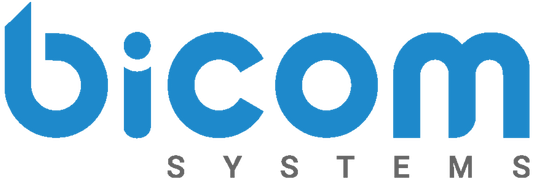The world of server management is always evolving, and with that comes new and improved features for administrators. Bicom Systems’ SERVERware 4.4 comes with plenty of new features that can make the life of a server administrator much easier. In this article, we will take a look at what’s new in SERVERware 4.4.
What’s new in SERVERware 4.4
1. Maximizing Security With sipPROT
In today’s digital age, it is essential for VoIP service providers to ensure a secure connection between end users and their VoIP solution/PBXs, and to protect their servers from SIP brute-force attacks. To help with this task, we’re introducing a new and improved sipPROT feature that comes with several enhancements to make your network more secure:
-
GeoIP Blocking: The Power to Control IP Access
One of the most significant additions to sipPROT is the GeoIP blocking feature. This feature allows you to block or allow IP addresses based on their geographical location. This means that you can restrict access to your network from specific countries, for example, to prevent attacks from known malicious countries. This feature is easy to use and administrators can quickly configure GeoIP blocking with a few clicks.
-
Easier Management and Debugging of sipPROT-Blocked IPs
The new enhancements in sipPROT make it easier for administrators to manage and debug issues related to sipPROT-blocked IPs. With the GeoIP blocking and API for Geo IP lookups, you can quickly identify any IP addresses that may be causing problems and take appropriate action. This makes it easier to maintain a secure network and respond to security threats quickly and efficiently.
2. New DNS NAT Support Feature
SERVERware’s built-in Authoritative DNS with NAT support is a game-changer for businesses looking for a reliable and flexible DNS solution. With this feature, you can easily assign a domain name or subdomain to your SERVERware cluster, and it will resolve the IP address of your VPS by its name, providing seamless access to your customers.
But what happens when you deploy a standard Network Address Translation (NAT) setup? In such a setup, a one-to-one NAT is utilized, meaning that for each VPS private IP, a public IP address is assigned. This is where the newly added option to set the external IP address comes into play.
With the external IP address option, you can now add information about the public IP addresses of your VPSs. And for each external A record request from the public network, the SERVERware DNS will respond with a record containing the external IP. This feature is especially useful for geo-redundant setups where the DNS NAPTR and SRV records are used to move VPSs around.
Another benefit of the external IP address option is that it is available for the GRS-enabled VPS, ensuring that the VPS’s functionality is not affected during a takeover.
3. Securing Your Data with SERVERware’s New SSL Certificate Management Page
In today’s world of cyber threats, it’s critical to ensure the safety and privacy of sensitive information exchanged between users and websites or between two systems. This is where Secure Sockets Layer (SSL) comes into play, using encryption algorithms to scramble data in transit, thereby preventing hackers from accessing it.
To help you manage SSL certificates on SERVERware Web Console, we’ve introduced a new page with all the details you need. From this page, you can upload a certificate manually, generate a Certificate Signing Request (CSR), and even obtain and update an SSL certificate via the Automatic Certificate Management Environment (ACME) protocol.
-
Generating CSR from the GUI
Generating a CSR is a straightforward process that requires you to send the issuing Certificate Authority (CA) your public key and provide relevant information about the requester. SERVERware Web Console makes it easy for you to do this from the GUI. Simply select a domain and generate the CSR and select a private key for the domain to use for the purchase of an SSL certificate.
-
Manual Certificate Upload and Installation
If you prefer to use an SSL certificate from a provider other than the self-signed one that is the default, you can easily upload the .PEM file and (optionally) the private key to SERVERware Web Console. Once you press “Upload,” the system will automatically switch to the newly added certificate.
-
Automatic SSL Certificate Installation
The administrator can obtain a free SSL certificate with just a few clicks by providing a domain and an email. The certificate will be installed automatically on a SERVERware instance. This feature saves time and makes it easier to maintain SERVERware SSL certificates.
-
Support for ACME Servers Requiring External Account Binding
We’ve also extended our automated SSL certificate installation to support CAs that require External Account Binding (EAB) for registering ACME accounts (ZeroSSL, Google Trust Services, etc.).
-
DNS Challenge for Domain Verification
In situations where a SERVERware instance is not publicly available or a wildcard domain is needed (*.example.org), you can still obtain a certificate using the DNS challenge. This can be accomplished with a manual DNS setup or by using SERVERware CoreDNS functionality.
-
Revoking a Certificate
If the private key of a certificate is compromised, you have the ability to revoke it. This option is available only if the certificate was generated from Let’s Encrypt, ZeroSSL, and other similar free providers via the automated activation method. After a revocation, SERVERware will switch to a self-signed certificate unless you choose to keep the current certificate.
-
Manual Renewal of an Active SSL Certificate
If you need to renew an active SSL certificate, it’s possible to start the process manually. This option is only available if the certificate was generated from Let’s Encrypt, ZeroSSL, and other similar free providers via the automated activation method. The administrator will also receive a persistent notification banner 7 days before the certificate’s expiration date.
In conclusion, SSL is essential for securing sensitive information exchanged between users and websites or between two systems. With SERVERware Web Console, managing SSL certificates is easy and straightforward, allowing you to maximize your web security with just a few clicks.
4. Audit Log: A Vital Tool for SERVERware Monitoring
As the world of technology advances, the need for a robust monitoring system becomes increasingly crucial. To address this need, SERVERware has introduced a new Audit log, which provides essential details about the actions performed in the system. The Audit log is accessible under the Reports sub-menu and is a valuable tool for SERVERware administrators and support personnel in troubleshooting or analyzing SERVERware activities.
The real value of the Audit log lies in its ability to improve diagnostics and decision-making. The log is directly connected to the dashboard’s recent activity widget, which allows quick inspection and reaction when expanded. This feature can be a game-changer for administrators who need to quickly resolve any issues that may arise.
5. Improved Features and Bug Fixes: Streamlining Monitoring and Backup Management
SERVERware 4.4 introduced several new features aimed at enhancing monitoring and improving backup management. BSSUP Session Recording has been added to record SSH access and sessions with all executed commands and output. The backup management process has been made easier with the introduction of the ‘Remove VPS Backups’ option for keeping backup servers clean and organized. The restore process for deleted VPSs has been redesigned and now offers a dropdown list of restore points. Additionally, the backup and restore management has been improved with the ability to sort the list by VPS name and dataset size. These new features aim to simplify the monitoring and management process for SERVERware administrators and support personnel.
SERVERware 4.4 version also resolves many bug fixes to provide a more stable and efficient experience. With the introduction of new features aimed at enhancing monitoring and improving backup management, as well as the resolution of various bugs, this update is a significant step forward in the overall performance and reliability of the SERVERware platform.
Contact Us
For any questions or concerns regarding the SERVERware 4.4 update, our partners are encouraged to contact us for further support. The release notes for SERVERware 4.4 can be downloaded from the Bicom Systems website for a detailed explanation of the new features and bug fixes included in this release.

